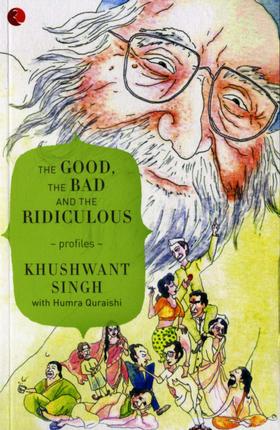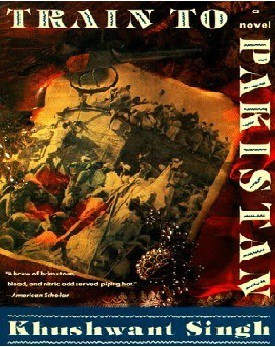The latest book by Khushwant Singh that recently hit the bookstores is a compilation of 35 famous and controversial personalities through the eyes of the 98 year old celebrated columnist. The Good, The Bad and The Ridiculous pens uncensored attacks on people with whom Khushwant Singh had relations, met and interacted over the years. Co-authored by Humra Quraishi, this book provides an insider’s look at the lives of people like Indira Gandhi, Giani Zail Singh, Jinnah, Gandhi and many others and introduces us to their not-so-pleasant characteristics.
He dedicates small chapters to each personality and narrates his accounts wittingly and candidly. The book engages you with innately honest opinions and makes one curious to know what bomb would explode in our perceptions of the famous ones after reading about them.
Reading out blurbs like, “There was something cold and haughty about her. Not my type at all … But she had her set of admirers … and never forgave anyone who said anything against her” for Indira Gandhi or “He took a vow of celibacy in his prime, but without consulting his wife, which I think was grossly unfair. He would sleep naked beside young girls to test his brahmacharya. He could be very odd” for the Father of the Nation makes the book both intimate and irreverent.
He quite clearly expresses his bitterness for L.K Advani and expresses his ‘ambivalence’ for Indira Gandhi. Khushwant Singh dedicates the biggest chapter to V.K Menon followed by a close second of Giani Zail Singh.
The book entertains and shocks the reader with Singh’s sketches of the good, bad and the ridiculous shades of the people whom he knew for almost a century. Well informed accounts and frank opinions by KS have been appreciated by all and makes him one of the most honest and candid writers in this industry. Khushwant Singh also makes it very clear in this book he that neither dreads criticism and nor is bothered about it.
This book will certainly ring a bell for people who crave gossips coming out from the elite class of the country. Notwithstanding the fact that the book is only a person’s opinion which need not be a full story, the book can prove to be useful for peeking into the lives of others through the eyes of the Big Old Man of the writing world.


